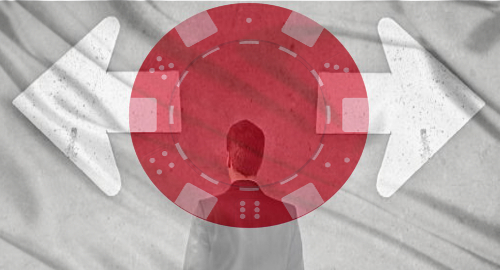 Japan’s skittishness toward the launch of its casino market was on full display in the vague recommendations of a panel of experts.
Japan’s skittishness toward the launch of its casino market was on full display in the vague recommendations of a panel of experts.
On Monday, the government-appointed panel tasked with recommending rules for governing Japan’s proposed integrated resort industry submitted their draft report to legislators. The government will use the recommendations to craft the so-called Integrated Resorts Implementation bill that the Diet will consider in its extraordinary session this autumn.
Many of the recommendations have been widely telegraphed in advance, such as using Japan’s ‘My Number’ identification card system to restrict the number of visits Japanese citizens can make to casino gaming floors. However, the panel declined to specify how many visits will be allowed in any one-week or one-month period, leaving that decision up to legislators.
Similarly, while the panel recommended a Singapore-style casino entry levy on local residents, the amount of that levy will be up to legislators. International tourists won’t be subject to the levy, reflecting the government’s hope that its new resorts will drive tourism.
Foreign visitors will also be allowed to purchase casino chips using their credit cards, while Japanese citizens will be limited to cash-only purchases. Automatic teller machines won’t be allowed on the casino floor, neither will anyone under the age of 20 years old.
Beyond that, the draft report is maddeningly vague, suggesting a cap on the number of integrated resorts but not quantifying that cap. Most observers expect either two or three main integrated resorts will be approved, along with a number of smaller gaming venues in other regions.
The report also calls for an “upper limit” on the size of the resorts’ gaming floors, but doesn’t specify how large. This has caused consternation among prospective casino operators, given Japanese legislators’ borderline obsession with mimicking Singapore’s integrated resorts – and their 15k-square-meter gaming floors – without factoring in the fact that Singapore’s population is a fraction of Japan’s.
Japan’s legislators appear unsure about their prospects for pushing the IR Implementation bill through the Diet, given the Japanese public’s unease regarding the effect of casino gambling on a population already struggling with problem gamblers who can’t handle the nation’s pachinko parlors.